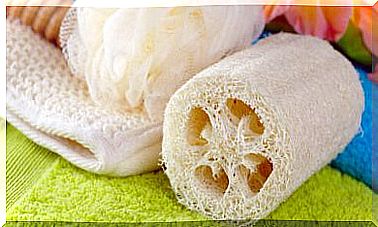Homemade Recipes To Treat Dysphonia
In order not to damage the throat, we must avoid hawking and exaggerated coughing. Adequate rest is also essential for our vocal cords in order to reduce the chances of dysphonia.

Misnamed ‘aphonia’, dysphonia is a voice disorder when its quality is altered, but without disappearing completely. There can be different causes and types. Learn more about her in the following article.
Types of dysphonia
There are two types of dysphonia: functional and organic. The former arise from a complication in the larynx, from nodules, polyps, cysts, edema or ulcers or from inhibition, spasmodic, psychiatric problems, etc.
In the case of organic dysphonia, they occur due to an injury to the phonation organs, caused by congenital diseases in the larynx or extralarynx, by hormonal and neurological problems, or by surgical or traumatic alterations.

Why can they appear?
Among the most common causes of dysphonia we can highlight:
- Colds
- Chronic laryngitis
Caused by tobacco consumption, prolonged cough, inhaled medication, contaminated environments, respiratory infections.
- Acute laryngitis.
Related to the most frequent respiratory problems.
- Vocal cord injuries (benign).
Reinke’s edema (common in women, due to abuse of the voice and tobacco), nodules (psychological factor, allergies, infections or reflux) and polyps (smoking, reflux or abuse of the voice).
- Neurological dysfunctions.
Many diseases can cause bilateral or unilateral vocal cord paralysis, such as Parkinson’s, lupus, arthritis, or multiple sclerosis.
- Systemic diseases.
Hypothyroidism, lupus, or those autoimmune.
- Malignant lesions :
Laryngeal cancer due to smoking or alcoholism.
What are the best natural remedies to reduce the symptoms of dysphonia?
You can try some recipes for broths or natural juices:
- Drink zucchini or borage broths, two vegetables rich in mucilage that soften the mucous membranes, among the many other properties it has, as we can see in this research work from the University of Seville.
- Add a teaspoon of thyme to a cup of boiling water. Let stand 10 minutes, strain. Add the juice of half a lemon and a tablespoon of honey. Drink as tea.
- Consume pineapple juice or slices of this natural fruit. Its ingredients serve to revitalize the tissues of the larynx and vocal cords.
- Blend an onion with two tablespoons of honey in a blender. Strain and drink three tablespoons per day. This is due to its anti-inflammatory properties.
- Cut two large leeks and boil them for 20 minutes in water (1 liter). Strain as a broth and drink several times a day.
- Extract lemon juice and mix it in half a cup of water with half a teaspoon of baking soda. Drink once a day. This is thanks to the antibacterial properties of lemon.
- Boil 200 grams of carrots in a liter of water for 10 minutes. Cut into slices and squeeze. Mix with a tablespoon of honey and consume daily.
- Drink an infusion of tangerine peel (with one fruit per cup of water).
- Boil a liter of water with a handful of cloves, 1 tablespoon of honey and the juice of a lemon for ten minutes. It is recommended to drink it warm before sleeping. It is good for inflammation of the mouth and throat.
- Wash raw cabbage leaves, and add lemon juice, salt and olive oil. Consume at noon and at night.
All these recipes are based on popular beliefs, so the best thing in these cases is to go to the specialist doctor to provide us with a diagnosis and treatment appropriate to our specific case.
Try gargling with these recipes to improve dysphonia:
- Boil a cup of water and add the juice of one lemon. It is recommended to do twice a day.
- Boil a cup of water and a teaspoon of plantain. Let cool and gargle. According to this study published in the Magazine Tecnología en Marcha, it is used to heal the pain of throat and irritation in the mouth, in addition to reducing glandular inflammation.
- Do gargle several times a day with a tablespoon of coarse salt mixed in a cup of hot water.
- Fill the sink with boiling water. Place your face close and a towel over your head to breathe in the steam through your nose.
- Gargle with an infusion resulting from boiling the bulb of an onion with a cup of milk (10 minutes of cooking).
- Mix a cup of boiling water with a tablespoon of rosemary. Cover and leave to cool. Gargle several times a day.
- Prepare a tea with 1 tablespoon of eucalyptus for each cup of boiling water. Let cool covered. Strain and gargle as many times as necessary.
- Boil half a liter of water with 1 tablespoon of barley, 15 minutes. Strain and add a tablespoon of honey. Gargle at least three times a day.
Tips to avoid dysphonia
So that you do not suffer from this problem, you should take into account the following tips:
Avoid ambient noise.
By being forced to raise your voice, the vocal cords are damaged. For example, at concerts, busy restaurants, or on a busy avenue. If you add smog, pollution, tobacco and alcohol, the picture worsens.
Don’t speak beyond your means.
You have a specific resistance to speak according to your characteristics and your vocal training. Do not exceed your limits, by yelling or singing too loud.
Use your vocal resources well
This means that you remember to breathe well before speaking, not to get angry or raise your voice for what you do.
Do not smoke
Tobacco has serious consequences, one of them can be dysphonia, since it causes irritation and dryness because it is composed of toxic substances.
Maintain good hydration
Keep in mind that your vocal cords must be well moistened, so drink at least 2 liters of water a day. Avoid alcohol and coffee, because they decrease the necessary lubrication. The dry environment complicates the situation, as well as some medications (such as antihistamines or antidepressants).
Sleep enough
At least 6 hours of sleep per day to avoid vocal fatigue and increase the chances of dysphonia or other injuries. Screaming nodules may appear.
Avoid clearing your throat or coughing forcefully
To be able to do the first, you can take a deep breath, hold your breath for a moment and then exhale quickly.
See also:










